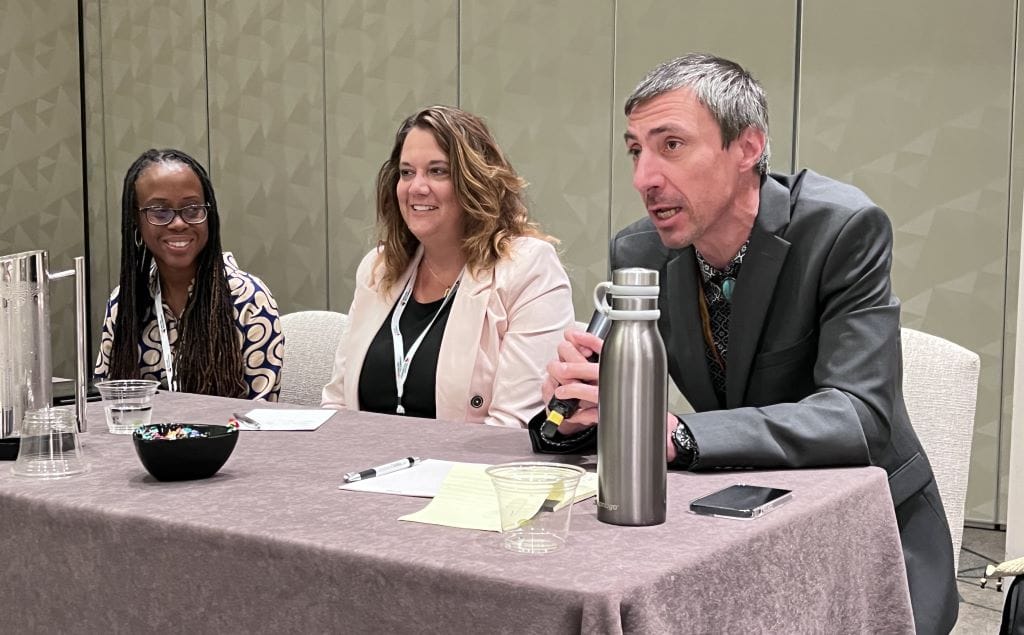State BEAD Challenge Process Requires Outreach Coordination
ISPs can’t be expected to understand all program rules and processes, event hears.
Teralyn Whipple

DENVER, Colorado, August 10, 2023 – State broadband officials told attendees at the Mountain Connect conference Wednesday that the state challenge processes for money from the Broadband Equity, Access and Deployment program will require a lot of outreach coordination.
Dr. Tamarah Holmes, broadband director in Virginia, said that her state is working on outreach and awareness to let local governments know how they can participate in the upcoming challenge process.
In June, states were allocated money through the $42.5 billion BEAD program. States will conduct a subgrantee process and challenge process of state maps that outline which locations, unserved and underserved, are available for grants.
Virginia already has a challenge process in place for its state grant programs, said Holmes. The concern for the state broadband office is educating internet service providers and local government on how they can interact with the BEAD challenge process, she said.
The same is true of Minnesota, said Bree Maki, executive director of the Minnesota Office of Broadband Development. Minnesota already has a “robust challenge process” in which providers can challenge coverage claims by other providers, she said.
It is important to be open with all the stakeholder at the table, including cable and telecom companies and cooperatives, about how the challenge process may differ for the BEAD program and what they can do to efficiently participate in the process, said Maki.
States cannot expect every ISP to understand and manage the different program and challenge requirements and processes for each state and federal grant program, she said. Coordinating the efforts and communicating will continue to be a challenge throughout the whole process, Maki concluded.
Ovidiu Viorica, broadband and technology manager at Connect New Mexico, added that engaging with stakeholder is essential but that it demands a lot of resources. The state is meeting individually with the 23 Tribal nations it has to ensure that Tribes are engaged in the BEAD program, he said.
In June, the NTIA released its challenge process guidance which provides guidance for states on how to design and implement the challenge process. The NTIA will review and approve each state’s challenge process, included in volume one of the initial proposal, first to allow states to begin conducting their challenge process prior to full initial proposal approval.
Viorica said that New Mexico will continue to work on the BEAD initial proposal up until the deadline in December. Virginia’s initial proposal volume one was posted for public comment in July and volume two is expected in the coming weeks. Minnesota submitted its five-year action plan but does not anticipate its initial proposal until the end-of-year deadline.








Member discussion